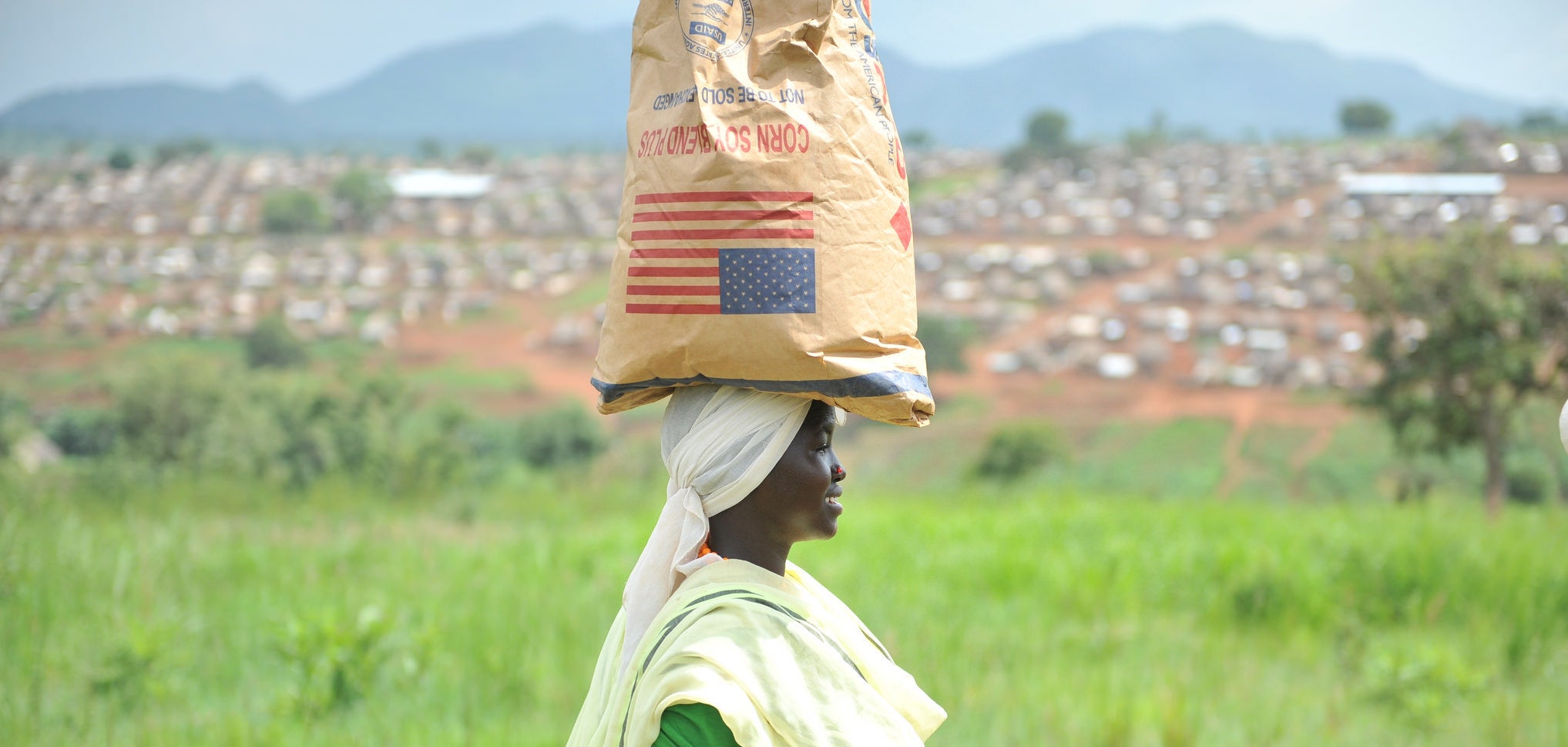The global burdens of hunger and obesity have, at their heart, similar solutions: improving secure access to nourishing food, creating self-sufficiency, building capacity in communities, and fostering resiliency among the world's populations. Here are updates from seven of the Friedman-based projects with a global focus on improving health and nutrition.
The Feed the Future Innovation Lab for Nutrition
Housed at the Friedman School and led by Friedman Professor Patrick Webb, the mission of the USAID Feed the Future Innovation Lab for Nutrition (FTFNIL) is to discover how integrated interventions in agriculture, nutrition and health can achieve large-scale improvements in maternal and child nutrition in Asia and Africa. FTFNIL enhances institutional and human research capacity around agriculture, health and nutrition in Africa and Asia through support for short courses and conferences, such as their annual scientific symposia in Nepal. In partnership for the first time with the Agriculture, Nutrition & Health (ANH) Academy, FTFNIL jointly hosted their 5th Annual Feed the Future Innovation Lab for Nutrition Agriculture-Nutrition Scientific Symposium, July 2017 in Kathmandu, Nepal.
The participation from the government has been encouraging and we’ve witnessed an increase in their willingness to be a part of this
A record number of attendees, including early career researchers, NGO's, and government officials turned out for this yearly exchange of knowledge. "Just the opportunity for the students to talk to professionals, it’s a lot," said Robin Shrestha, Friedman alumn and regional project manager for FTNIL. "The participation from the government has been encouraging and we’ve witnessed an increase in their willingness to be a part of this," says Shrestha, "The symposium is the right platform for them to learn what has and hasn’t worked."
In addition to co-hosting this successful symposium, the Nutrition Innovation Lab continued to break ground in nutrition, agriculture, and health related research. Two of the Innovation Lab’s supported PhD students are doing research on topics for which no data currently exists; one of these is on the topic of EED in Uganda while the other looks at Aflatoxins in Nepal. In addition to continuing their work in Bangladesh, Nepal, Malawi, and Uganda, the Innovation Lab has also recently been awarded a research grant with Mozambique.
The Indicators of Affordability of Nutritious Diets in Africa (IANDA) Project
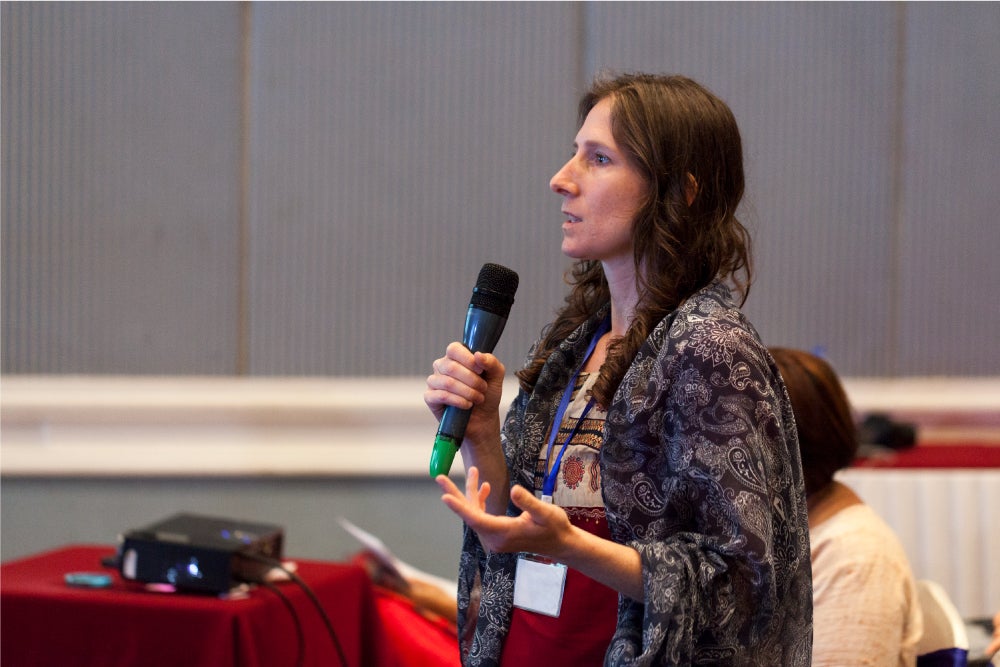
Led by Friedman Associate Professor Jennifer Coates, Professor Will Masters, and Dr. Anna Herforth, IANDA works with the governments of Ghana and Tanzania to develop metrics about the availability and affordability of diverse foods and nutritious diets. IANDA is currently piloting four new measures: the Cost of a Diverse Diet, the Cost of Nutrient Adequacy, the Cost of a Recommended Diet, and the Nutritious food Price Index, (NPI). The resulting metrics will provide accountability and help policymakers better diagnose and take action upon the nutritional challenges within their food systems using publicly accessible resources.
The IMMANA Fellowships Program
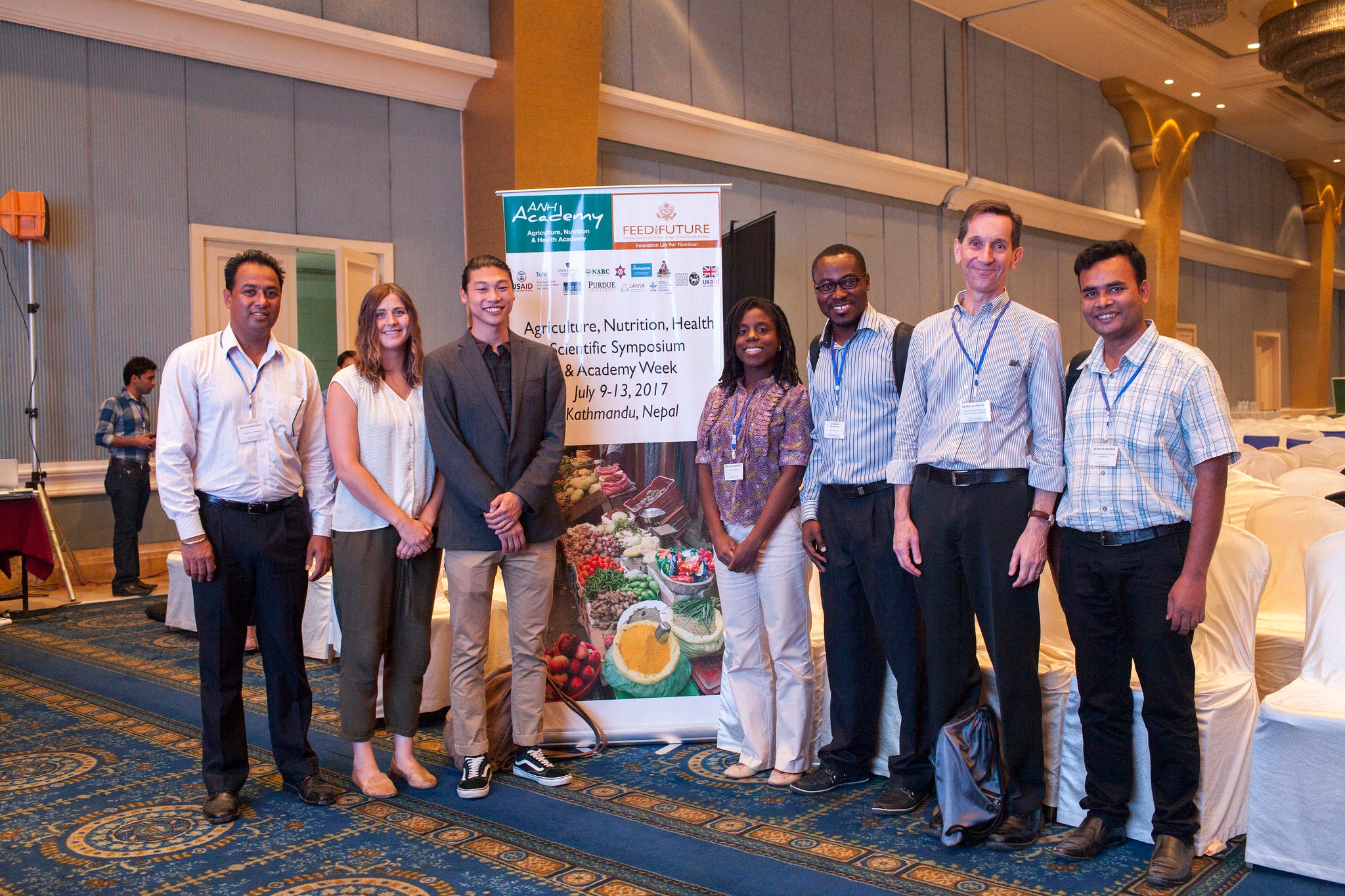
Under the leadership of Friedman Professors William Masters and Patrick Webb, the IMMANA Fellowships program is building a core group of early career researchers who are exploring new methods toward creating the most cost-effective actions for sustainable, large-scale improvements in agriculture, nutrition and health.
The programme has been fortunate to attract interest from outstanding scholars working across a broad range of topics.
These one-year opportunities facilitate learning, sharing, and new interdisciplinary research collaborations, while simultaneously developing scientific evidence to inform policies and investments in agriculture and food systems for improved nutrition and health. There are four rounds of five to six Fellowships each year, funding innovative research ranging from the impact of home gardening on micronutrient levels in breastmilk in Ethiopia to fish characteristics and consumer demand in Bangladesh. Read more about what makes the IMMANA Fellowships Program so unique.
The International Dietary Data Expansion (INDDEX) Project
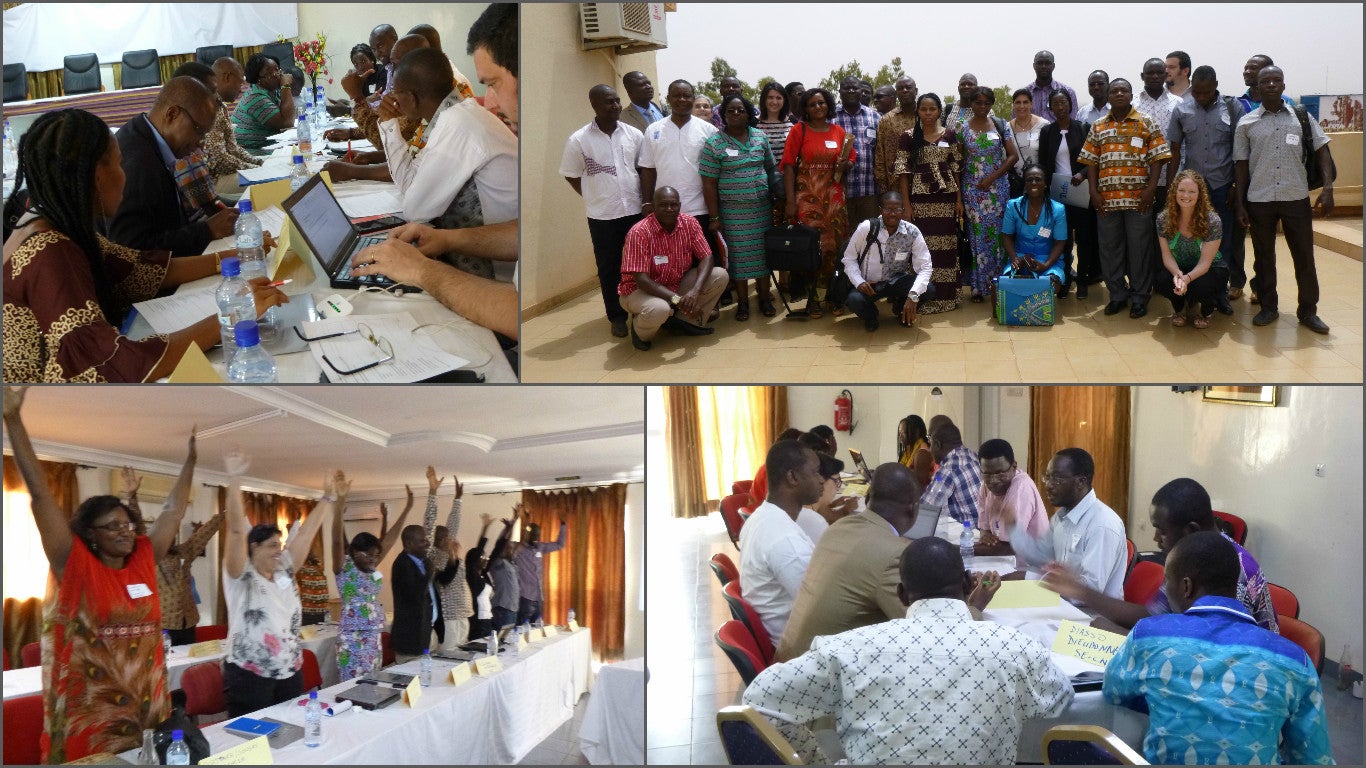
Led by Friedman Associate Professor Jennifer Coates and Professor Beatrice Rogers, INDDEX is developing a global architecture for dietary data assessment. By incorporating innovative technologies, leveraging existing data, strengthening institutions, and demonstrating the policy relevance of food consumption data, the work generated by the INDDEX Project enables the design and implementation of more effective food, nutrition, and agricultural policies and programs to improve the health, well-being, and livelihoods of people worldwide.
Currently, INDDEX is working with stakeholders in Burkina Faso and Viet Nam in order to develop tools for collecting individual-level dietary data and methods for improving the collection and use of household-level data. The INDDEX team in collaboration with partners has developed the INDDEX24 Platform this year (version 1). INDDEX24 is a dietary assessment platform comprised of a mobile application for collection of individual-level dietary data, which is linked to a web database application that will house country- and region-specific inputs, such as food composition information, recipe data, and portion conversions, all of which are required to collect and process individual-level dietary data.
This will be a vast improvement over pen and paper methods currently being used in low-income countries
This will be a vast improvement over pen and paper methods currently being used in low-income countries as it will decrease the amount of time it takes to enter, clean, process and analyze the data. The INDDEX team will be evaluating the feasibility of INDDEX24 through a study in Burkina Faso in the Fall 2017 and early winter 2018 in Viet Nam.
In April 2017, INDDEX hosted an ASN Scientific Session at the annual Experimental Biology conference titled “Global dietary assessment architecture: Where are we? Where do we need to be? And how can we get there faster?” This session provided an overview of the current global dietary assessment architecture (i.e., methods, tools, and data sources) and the bottlenecks that must be overcome in order to scale up dietary data accessibility and use in low-income countries. The session also illustrated plans to accelerate the scale-up of global dietary assessment by detailing current research and programmatic initiatives, innovative technologies, and approaches to expanding access to, availability, and use of food and nutrient data. View all of their recent publications here.
Food Aid Quality Review (FAQR)
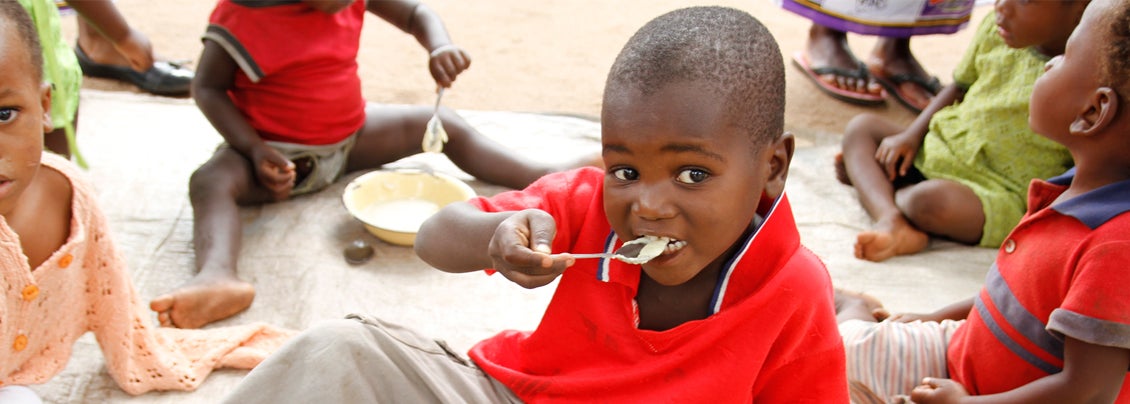
Every year, the U.S. Agency for International Development (USAID) sends more than a million tons of food to food insecure people around the world, most of them children. When USAID wanted to update its food-aid products to reflect the latest evidence, it turned to the experts at the Friedman School. Since 2009, the Food Aid Quality Review (FAQR) team, led by Patrick Webb, the Alexander McFarlane Professor of Nutrition, and Professor Beatrice Rogers, has been analyzing everything from micronutrient levels to supply-chain efficiencies to whether the food is ending up in the right bellies. "All these small, smart changes add up to better outcomes for the world’s most vulnerable populations,” Webb said.
All these small, smart changes add up to better outcomes for the world’s most vulnerable populations.
USAID efforts to prevent and treat malnutrition rely on these food aid products, saving millions of lives and laying the foundations for political, economic and social stability. In one field trial, the FAQR team worked with caregivers of children under 5 years of age in a USAID supplementary feeding program for moderate acute malnutrition in Southern Malawi. The goal of the intervention was to provide an increased fortified oil ration along with targeted education and communication to encourage caregivers to prepare Corn Soy Blend (CSB) porridge with more oil than is customary. The study investigated the effectiveness of the intervention in getting caregivers to prepare the porridge as instructed. Why add more oil? Fortified oil increases the nutritional value of the porridge both by adding vitamins A and D and by helping children absorb fat soluble vitamins in the CSB: vitamins A, D, E, and K. Adding oil also increases the calorie density of the porridge, so that each spoonful contains more energy. In a population where malnutrition is high, improved nutrition is critical for child survival. In the end, the FAQR project’s education and communication intervention was successful.*
Over the past year, FAQR has focused field efforts in Malawi, Sierra Leone, and Burkina Faso. In addition to studying and making recommendations for nutrition interventions in the food aid landscape, FAQR supports convening international agencies (USAID, WFP, UNICEF, and Doctors Without Borders (MSF)) to increase collaboration regarding products, programs, and processes related to food aid quality. This year they successfully harmonized specifications for three ready-to-use food aid products, and established a collaborative working platform for key agencies to improve the quality of food aid products and address safety concerns. This is just a small glimpse at all of the work FAQR does: Please visit their website for more information.
REFINE (Research Engagement on Food Interventions for Nutritional Effectiveness)
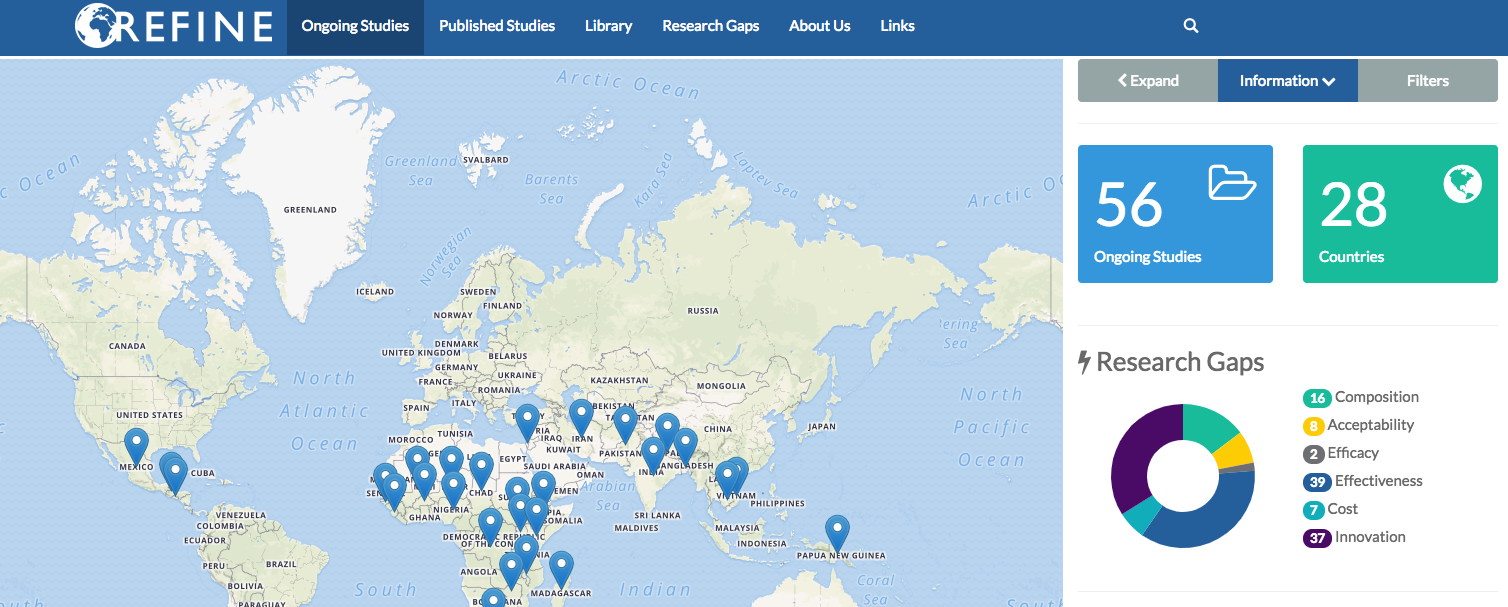
56
Ongoing Food Aid Project Studies225
Published Food Aid Project Studies28
Countries Studied5
Major Nutrition Problems Being StudiedThe REFINE site, designed in-house and launched by Friedman faculty, staff and students and a team from the World Food Programme, supported by the USAID Food Aid Quality Review project, is a knowledge-sharing mechanism to improve the quality of food aid products, policies, and processes. The site catalogs research activities surrounding food aid by documenting ongoing trials relevant to food aid programming and policy; collecting publications and making them easily available; and defining and tracking existing food aid product research gaps. The sites broad reach, targeting food aid policy makers, programmers and researchers, means that this effort will have a lasting impact on the food aid community. The REFINE website currently tracks 56 ongoing trials, hosts 225 published food aid product studies, and has links to 65 systematic reviews and discussion pieces related to food aid in its library.
UBALE
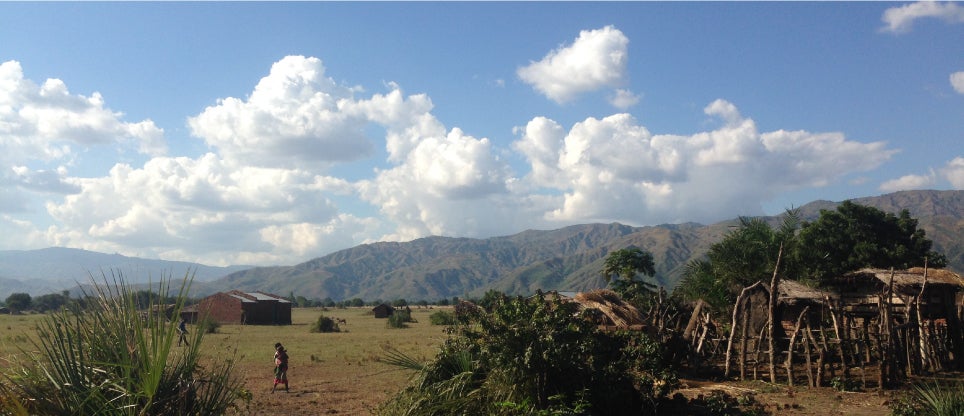
The Friedman School is working with Catholic Relief Services (CRS) and other partners in Malawi on the UBALE project, a five-year development food assistance program funded by USAID’s Office of Food for Peace with additional research funding under Feed the Future. The United in Building and Advancing Life Expectations program – or UBALE, which means partnership in Chichewa – is a key element of USAID’s comprehensive development cooperation strategy in Malawi. The project is implemented with local NGOs through existing government structures in three food-insecure, chronically malnourished and disaster-prone districts of Southern Malawi: Chikwawa, Nsanje, and Blantyre Rural. UBALE covers all 284 communities in these districts, totaling about 248,000 households with children under 2, and delivers an integrated set of agriculture and nutrition interventions.
Students perform data collection, analysis, and prepare reports about what was found.
Each summer two Friedman School students travel to Malawi to take on a research topic related to UBALE's goals. These students perform data collection, analysis, and prepare reports about what was found. This past summer, Food Policy and Applied Nutrition Doctoral students Gloria Guevara Alvarez and Kate Schneider made the journey. Gloria is studying crop storage and willingness to pay for hermetic bags. Kate's research is on nutrition knowledge and program delivery.
The second year (2016-17) of Tufts-UBALE research on program delivery builds on first-year results, to further examine the nature of nutrition knowledge and the effectiveness of information delivery. The study aims to assess the extent of program-related and objective (factual) nutrition, health and aflatoxin knowledge and practices held by mothers in households of children under two as well as that of all the actors involved in transmitting nutrition information at each level of program implementation and to investigate the associations between knowledge and self-reported health and nutrition-related practices. UBALE is scheduled to run through 2019.
*This portion of the summary was taken from Julie Flaherty's article for Tufts Nutrition Magazine, "Next-Gen Food Aid."
Photo credit: Header photo was cropped from USAID Food for Peace Flickr account. Woman receiving USAID commodities at Bambasi refugee camp. A woman walks home with her monthly ration of Corn Soy Blend Plus, provided through a USAID-funded World Food Program project in Bambasi refugee camp, Ethiopia. Credit: Kiyori Ueno, UN World Food Program
Our Strategic Plan: Healthy Food For All
The Friedman School is committed to all people across the globe having access to sufficient, healthy food and prospering from good health.
